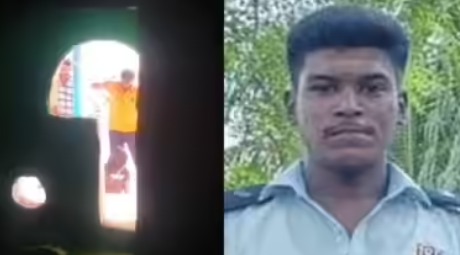The Hindu’s “Flawed Order” editorial misreads what the SC actually said about the #KarurStampede probe. Let’s look at how the SC’s observations have been twisted into claims the Court never made. 🧵1/10
❗️Before reading this 🧵, YOU SHOULD READ @the_hindu’s editorial 👇🏽
❗️Before reading this 🧵, YOU SHOULD READ @the_hindu’s editorial 👇🏽

The editorial calls SC’s reasoning amounts a “gag order” on officials. FALSE.
The Court never barred statements, it said cops’ & senior officials’ media remarks could create doubt about probe fairness. That’s caution, not censorship.
Anyone familiar with how justice works knows that conclusive public remarks by a senior police officer can compromise the integrity of an ongoing investigation. 2/10
The Court never barred statements, it said cops’ & senior officials’ media remarks could create doubt about probe fairness. That’s caution, not censorship.
Anyone familiar with how justice works knows that conclusive public remarks by a senior police officer can compromise the integrity of an ongoing investigation. 2/10
The Court cited West Bengal v. CPDR (2010) but used its “extraordinary power” because of high political sensitivity, procedural confusion, and cries for credibility. This fits exceptions, not routine transfers. SC acted to restore consistency in conflicting orders from MHC.
Therefore, this editorial's reference to the above ruling is irrelevant and misleading. 3/10
Therefore, this editorial's reference to the above ruling is irrelevant and misleading. 3/10
The Hindu says “CBI transfer is irreversible once charge sheet filed.” Misleading again.
SC’s order is interim; it can be modified or revoked anytime if new facts emerge or petitions prove fraudulent. Legal reversibility remains possible even after charge sheet filing. 4/10
SC’s order is interim; it can be modified or revoked anytime if new facts emerge or petitions prove fraudulent. Legal reversibility remains possible even after charge sheet filing. 4/10
It alleges “no mention of organiser responsibility.”
Fact: The SC-appointed Justice Rastogi Committee explicitly MONITORS all culpability, including TVK’s planning and crowd control lapses during . 5/10
Fact: The SC-appointed Justice Rastogi Committee explicitly MONITORS all culpability, including TVK’s planning and crowd control lapses during . 5/10
#TheHindu claims SC saw press briefings as “bias.” But SC only said early public defenses by senior cops & officials might create doubts about impartiality. It didn’t silence or blame officials & just urged care to protect public trust in a fair investigation. 6/10
The editorial omits how SC faulted MHC Judge Senthilkumar for taking suo motu cognisance in a PIL on rally protocols and expanding it into a criminal probe without jurisdiction. That created the confusion SC cleaned up. 7/10
The editorial mocks “judicial supervision” as excessive. But Justice Rastogi’s oversight is designed for transparency with 2 senior IPS officers (non-natives of TN) will report monthly to ensure impartiality. 8/10
The editorial hints petitioners were unaware of their cases. If true, the SC can take note and address it separately, which MAY affect the order later. But for now, the directions stand. #TheHindu treats this unverified allegation as an established fact, which is misleading. 9/10
In short, The Hindu’s take mistakes judicial caution for overreach. The SC didn’t gag anyone, didn’t pre-decide guilt, and didn’t break precedent. SC tried to restore order where the High Court’s handling created chaos. 10/10
@threadreaderapp unroll
• • •
Missing some Tweet in this thread? You can try to
force a refresh






